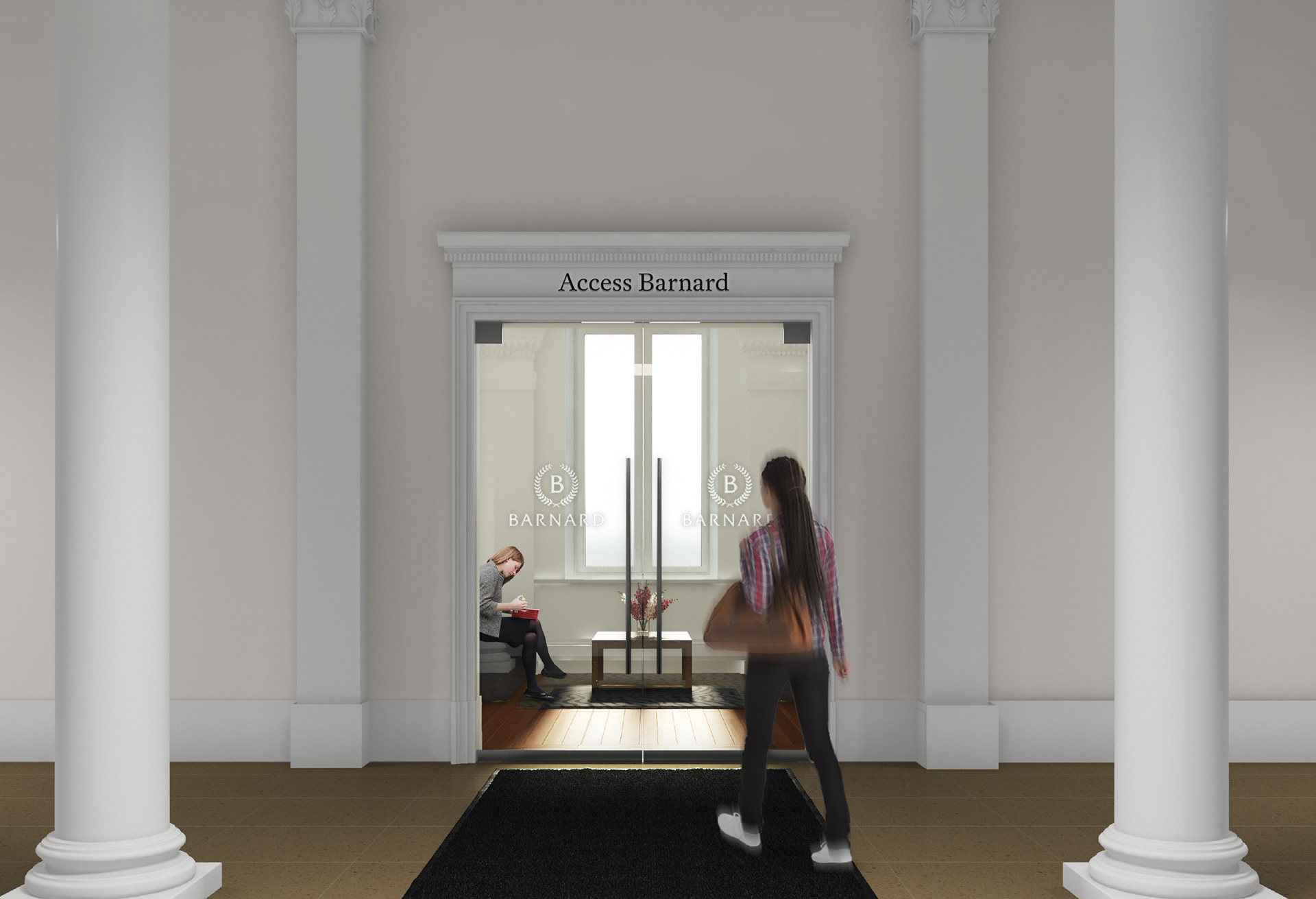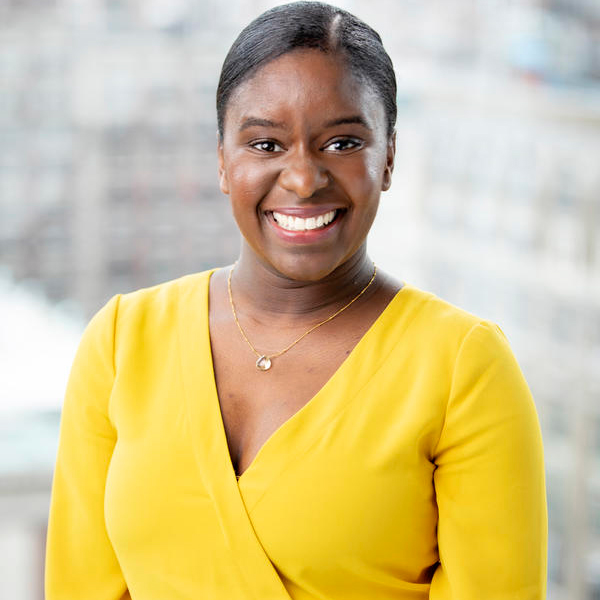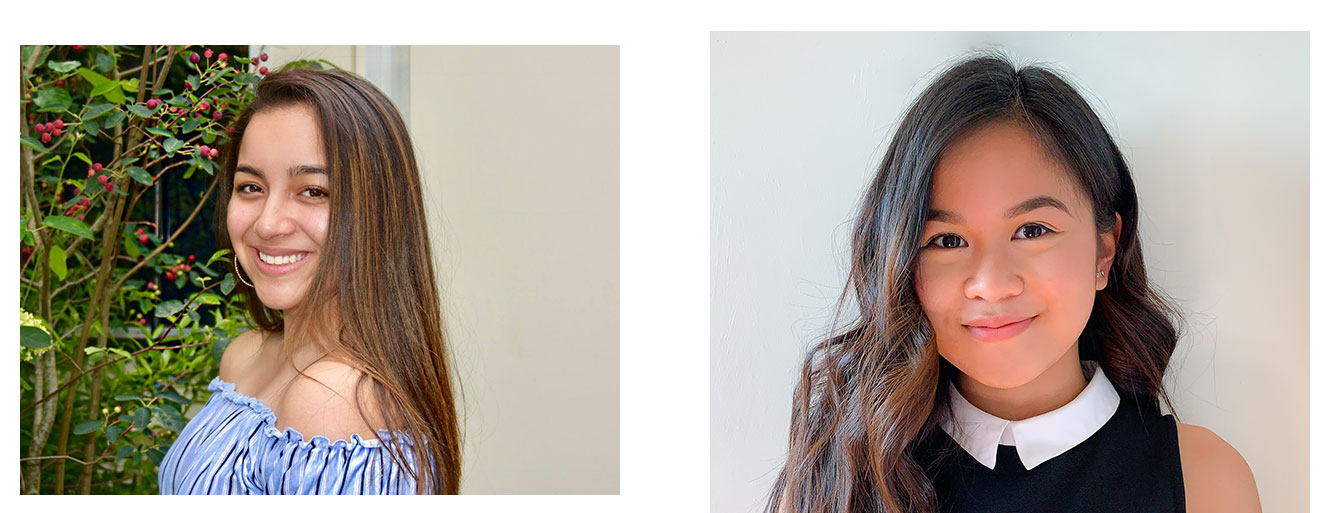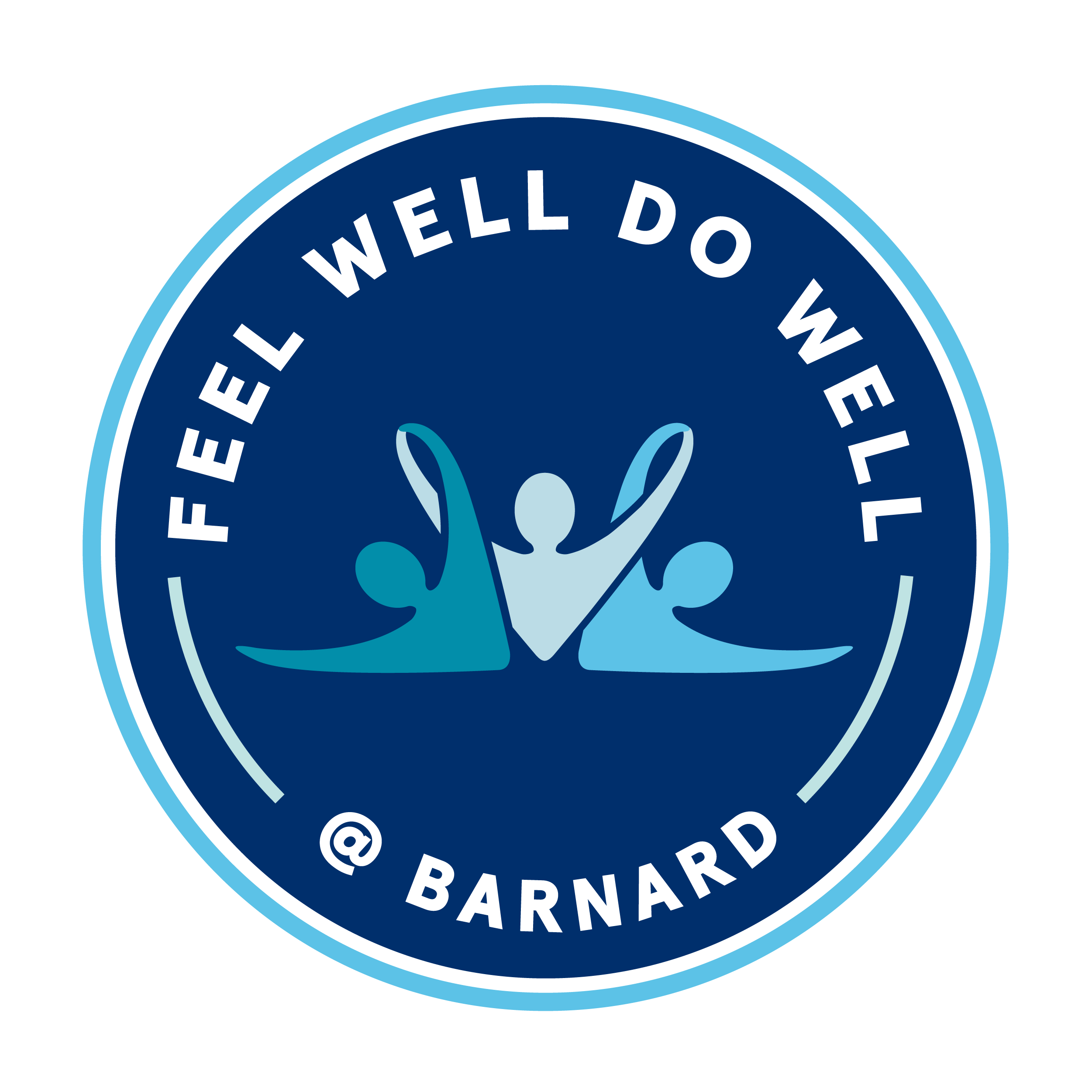[Photo (above): Dean Nikki Youngblood Giles]
During last year’s transition to online learning, Dean of the College Leslie Grinage and the Office of Diversity, Equity, and Inclusion (DEI) collaborated on a new initiative to ensure that students who identify as first-generation, low-income, or international (FLI) have the resources and support they need to thrive at Barnard. In the fall of 2020, the College launched Access Barnard virtually.
Now open in a new office space located in Milbank Hall, this institution-wide initiative is another example of how Barnard capitalizes on and grows its many existing resources. The department is overseen by Dean Nikki Youngblood Giles, who is supported by a senior leadership team of deans from across the college, including Jemima Gedeon, Associate Dean for Student Success, who describes how Access Barnard provides a physical home — and communal space — where all FLI students can socialize, attend workshops, ask questions, and study. “One thing they all have in common is that they are navigating the world of the American college system for the first time,” Gedeon said.
Access Barnard tailors resources to diverse academic needs via a Supplemental Academic Support Application (SASA) that students can use to request specific assistance and support, such as for mental health; funding for books, technology, and housing; or connecting with faculty and other students. Peer mentors, who are indispensable to the first-year student experience, also help students to identify their needs and collaborate with the College’s Center for Engaged Pedagogy to develop workshops and trainings for faculty and staff on supporting FLI student learning.
“Access Barnard has facilitated my college experience and connected me to many resources since its launch. In the fall, I was able to use the SASA form to cover the cost of textbooks and academic materials I needed for my classes,” said Juliana Tapia ’23. “This spring, I learned about the Con Edison Internship grant through an email from Access Barnard and was able to receive funding for housing as I conduct research on campus this summer.”
Another way that Gedeon and Access Barnard support students is through coordinated office activities that help to expand students’ connections across campus and by using a collaborative approach that works with different entities across the College — including the Athena Center for Leadership, Beyond Barnard, the Furman Counseling Center, the Dean’s Office, and Barnard faculty — to deliver a well-rounded experience. “We produce so many programs, and we collaborate with everybody on campus,” Gedeon said. “One of the things that I love about working at Barnard is that every population is everybody’s business.”
Supporting these student groups has long been a passion for Gedeon, who is also a first-generation college graduate. As such, she recognizes the attention required to build community. “It takes time to grow,” she noted, “and developmentally not everyone comes in ready to celebrate all these identities. A lot of students are grappling with these identities for the first time.” To help students who are dealing with challenges such as imposter syndrome, home-versus-college responsibilities, and how to own their own narrative, Gedeon hosts a Student Success blog and a Furman first-generation support group.
“I remind them that ‘you made it here, you earned it here, and you deserve a seat at the table like everyone else,’” Gedeon said. She’s a firm believer that higher education should be grounded in and informed by the populations they represent — the students themselves: “The only way to really understand what the needs are is to hear it from the student.” It is this perspective that has inspired Access Barnard to work with a student advisory board over the spring semester and during the summer. This board acts as a think tank for how best to identify and meet various student needs.
Students like Sharmie Azurel ’23 and Juliana Tapia '23 are involved with Access Barnard as FLI students and as members of the department’s social media intern team, creating content and coverage for the department’s Instagram page. (See their work below.)
“Juliana and I get to learn a lot under the guidance and leadership of Gedeon, but also other Access Barnard staff like Gianni, Raul, Ava, Sandra, Giovana, and many more,” Azurel said. “Everyone is so positive and energetic about their roles within AB!”
During July, National Minority Mental Health Awareness Month, Access Barnard staff and students play an even larger support role for students as they continue to increase FLI visibility on campus with an extended peer-mentoring system and summer AB programs. Tapia encourages other Barnard community members to “truly listen to their doubts and struggles, and if you can and if they feel comfortable, share advice or connect them with resources, people, or organizations that may help.”
For Azurel, it’s important to create space for FLI students. “Oftentimes, college can be intimidating and overwhelming, especially when you’re the first in your family to attend college or attending college from across the globe,” she said. “By having a visible FLI community on campus, I think students who identify within these groups will feel more comfortable and welcomed.”
Gedeon envisions Access Barnard becoming a place where students comfortably take advantage of all the resources that Barnard has to offer. “I want students to be excited about programs, I want them to come to programs,” Gedeon said. “I hope students will be really engaged with our office, because that is what we are striving for.”
— ISABELLA PECHATY ’23





